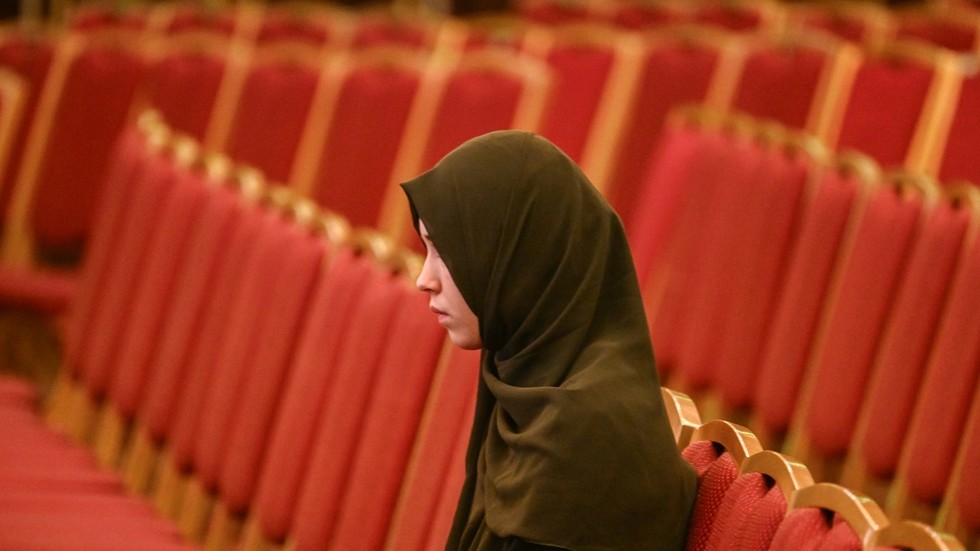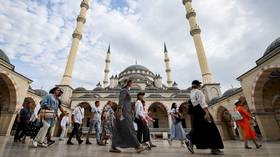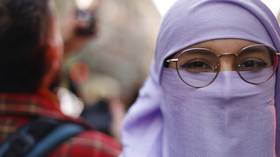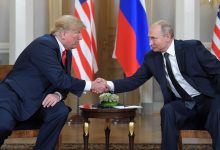
Clothing that demonstrates “religious affiliation” will not be allowed in educational facilities in Vladimir Region
FILE PHOTO © Maksim Bogodvid / Sputnik Local education authorities in Russia’s Vladimir Region have introduced a new requirement to the school dress code, barring students from wearing religious clothing, including hijabs and niqabs. In a document issued on October 22 and published on Saturday, the regional Ministry of Education and Youth Policy stated that a new clause has been added to the document titled “Standard Requirements for Student Clothing in Educational Programs of Primary, Basic, and Secondary General Education.” The amendment stipulates that “clothing and its elements demonstrating the religious affiliation of the student (including hijabs, niqabs, etc.)” are not allowed in educational institutions. The ministry argued that the rules were established in accordance with the Russian Constitution as well as federal law on religious associations and education, and did not specifically target Muslim clothing. “The established requirements for school clothing and students’ appearance, regardless of their religious affiliation, ensure the secular nature of state and municipal educational institutions and maintain religious neutrality within them,” the ministry explained in a post on VK on Sunday. The new policy will take effect one week from the date of publication.
Worn by some women of the Islamic faith, the hijab is a type of scarf covering the head and neck, while the niqab is a veil that covers the face entirely, leaving only a slit for the eyes. Vladimir Region is located in central Russia, 200 kilometers east of Moscow, and is predominantly populated by ethnic Russians, with less than one percent of residents being Muslims. Several other Russian regions have recently banned traditional Muslim face and head coverings, citing security concerns. This summer, the wearing of the niqab was restricted in the Muslim-majority republics of Karachaevo-Cherkessia and Dagestan, following a terrorist attack targeting Christian and Jewish sites that claimed the lives of 20 people. In a separate incident, a man dressed in women’s clothing and wearing a niqab opened fire on a police patrol in Dagestan after his car was stopped for a document check. Kremlin spokesman Dmitry Peskov stated that individuals with covered faces impede law enforcement agencies from fulfilling certain tasks.
“I believe that when such a situation arises, and when the interests of ensuring security dictate such necessity, everyone, including Muslims, should treat this with full respect,” he argued. Face coverings have also been banned or restricted in several Central Asian countries. Last year, Uzbekistan prohibited the wearing of face coverings in public, with exceptions that did not include religious clothing. Kazakhstan has already banned the hijab in schools and indicated it might expand the ban. Meanwhile, Kyrgyzstan has proposed fines for women wearing Islamic niqabs and for men with bushy beards.






